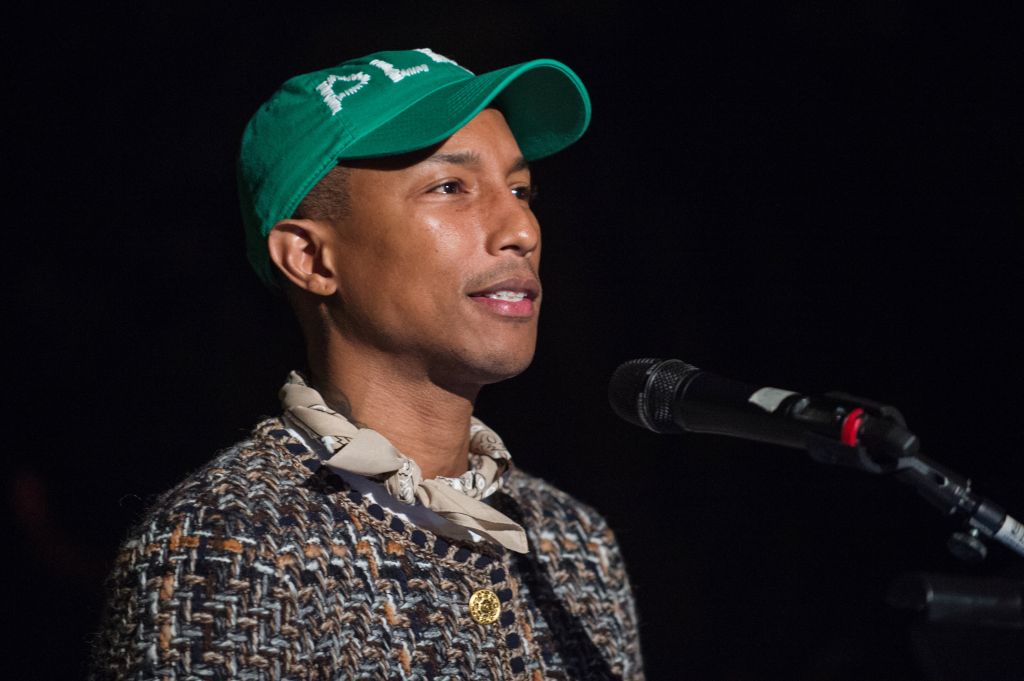Pharrell Reflects On 'Rapey' Lyrics Of 'Blurred Lines' 6 Years Later
Pharrell Williams Reflects On The ‘Rapey’ Lyrics Of ‘Blurred Lines’ 6 Years Later

Source: Emma McIntyre / Getty
Pharrell Williams is always someone looking for the “new.”
Sometimes it works out well for him, considering his long-lasting career as an innovative music producer who’s worked with everyone from Beyoncé to Britney Spears. However, sometimes the “new” isn’t always a good look for him, like that time in 2014 he tried to start a trend of the self-responsible “new Black.”
Now, in 2019, Williams is talking about the “New Masculinity” with GQ, and this time, he might have an argument for dismantling historically oppressive forms of masculinity. He used his involvement with the hit 2013 song “Blurred Lines” by Robin Thicke as an example of how he’s changed on certain issues. The song initially faced backlash from certain groups for lyrics like “I know you want it” being perceived as non-consensual come-ons.
Pharrell explained in GQ:
“I think ‘Blurred Lines’ opened me up. I didn’t get it at first. Because there were older white women who, when that song came on, they would behave in some of the most surprising ways ever. And I would be like, wow. They would have me blushing. So when there started to be an issue with it, lyrically, I was, like, What are you talking about? There are women who really like the song and connect to the energy that just gets you up. And I know you want it—women sing those kinds of lyrics all the time. So it’s like, What’s rapey about that?”
He continued:
“And then I realized that there are men who use that same language when taking advantage of a woman, and it doesn’t matter that that’s not my behavior. Or the way I think about things. It just matters how it affects women. And I was like, Got it. I get it. Cool. My mind opened up to what was actually being said in the song and how it could make someone feel. Even though it wasn’t the majority, it didn’t matter. I cared what they were feeling too.”
Some “blurred lines” Pharrell welcomes are blurred gender lines. He talked about how fluid his style can be irregardless if the clothes were meant for women or men. This is evident in his magazine photos where he easily switches between a dress-like puffer coat and pastel-colored materials.
“When you listen to yourself and you’re comfortable in who you are, you wear what you feel like fits and looks right on you,” Pharrell said. “And that’s it.”
Pharrell explained that he had limits to what he can wear, however. “Like, I can’t wear no skirt. Nor am I interested in wearing a blouse. That’s not my deal,” he said. “But things that are made for women that I feel will look good on me—that I like—I will wear.”
He went on to support other artists, like Lil Uzi Vert or Young Thug, who might be into other forms of clothing that traditionally have been meant for women.
“What rule [is there],” he inquired. “And when people start using religion as the reason someone shouldn’t wear something, I’m like, ‘What are you talking about?’ There was no such thing as a bra or blouse in any of the old sacred texts. What are you talking about?“
You can check out more of what Pharrell has to say, including thoughts on his male role models and the upcoming presidential election, here.
SEE ALSO:
Sounds About White! Atiatana Jefferson’s Killer Is Not Cooperating With Police, Chief Says
Black Adolescents Show Dramatic Increase In Suicide Attempts Compared To Whites, According To Study
















